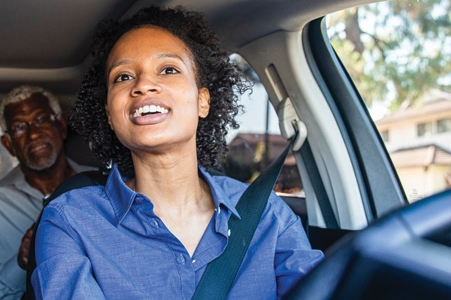10 Apr If You Drive but Don’t Own a Car, Consider Non-Owner Insurance

Whenever you’re behind the wheel, having adequate liability coverage is important because it helps protect you against claims if you injure someone in an accident or cause property damage. Here are some reasons to consider buying a non-owner policy.
You frequently use car-sharing services. Especially popular in cities, car-sharing services allow subscribers to rent vehicles on demand. They typically offer some liability insurance coverage, but you may need more to supplement it.
You frequently drive rental vehicles. In most states, you’re required to have liability coverage when you drive, and rental companies will provide at least the minimum amount required by the state. However, that may not be sufficient. Having a non-owner policy may help you avoid the extra cost of buying supplemental liability insurance offered by the rental company.
You’re temporarily between vehicles. If you have a coverage gap, you may pay more the next time you buy auto insurance. Having a non-owner policy can bridge the gap between the time you cancel one insurance policy and buy another.
You need to have your driver’s license reinstated. If you’ve had a serious moving violation, you may be required to prove that you have liability insurance in order to keep your driver’s license or have it reinstated, even if you don’t own a car. A non-owner policy may be used to satisfy that requirement.
A non-owner policy covers the cost of property damage you cause or injuries to people involved in the accident who are in a different vehicle. It generally won’t provide coverage for you, any passengers, or the vehicle you’re driving. (However, depending on the options available in your state, a non-owner policy may include other types of coverage such as medical payments, uninsured/underinsured motorist, or personal injury protection that might cover you and your passengers.) Typically, you won’t be covered if you’re driving a vehicle that is available for your regular use or owned by someone in your household who has auto insurance — generally you need to be listed on that policy.
Non-owner coverage is typically less expensive than standard auto insurance, but the premium will depend on factors such as coverage limits, where you live, and your driving record.
If you’re interested in a non-owner policy, talk to your insurance professional who can help you determine what coverage you may need and the premium cost.
This information was developed by Broadridge, an independent third party. It is general in nature, is not a complete statement of all information necessary for making an investment decision, and is not a recommendation or a solicitation to buy or sell any security. Investments and strategies mentioned may not be suitable for all investors. Past performance may not be indicative of future results.
Prepared by Broadridge Advisor Solutions Copyright 2022.
